The Redeemer Read online
Page 8
A voice crackled 'Ja' over the speaker.
'Police here, Harry Hole. Can we . . . ?'
The lock buzzed.
'It's all a question of moving fast,' Harry said. 'Most murder cases are solved in the first twenty-four hours or not at all.'
'Thanks. I've heard that one before,' Halvorsen said.
Birger Holmen stood waiting for them at the top of the stairs.
'Come in,' he said and led them into the living room. A bare Christmas tree stood by the door to the French balcony, waiting to be decorated.
'My wife is sleeping,' he said before Harry could ask.
'We'll whisper,' Harry said.
Birger Holmen gave a sad smile. 'She won't wake up.'
Halvorsen sent Harry a quick glance.
'Mm,' the inspector said. 'Taken a tranquilliser perhaps?'
Birger Holmen nodded. 'The funeral's tomorrow.'
'Yes, of course, that's a strain. Well, thank you for lending me this.' Harry put a photograph on the table. It was of Per Holmen sitting with his mother and father standing on either side. Protected. Or, depending on how you saw it, surrounded. A silence ensued as no one said a word. Birger Holmen scratched his forearm through his shirt. Halvorsen wriggled forward in his chair, then moved back.
'Do you know much about drug addiction, herr Holmen?' Harry asked without looking up.
Birger Holmen frowned. 'My wife has taken one sleeping pill. That doesn't mean—'
'I'm not talking about your wife. You may be able to save her. I'm talking about your son.'
'Depends what you mean by know. He was hooked on heroin. It made him unhappy.' He was going to say something else, but paused. He examined the picture on the table. 'It made us all unhappy.'
'I don't doubt that. But if you had known anything about drug addiction, you would have known that it takes precedence over everything else.'
Birger Holmen's voice at once trembled with indignation. 'Are you saying I don't know that, Inspector? Are you saying . . . my wife was . . . he . . .' But tears had crept into his voice. '. . . his own mother . . .'
'I know,' Harry whispered. 'But drugs come before mothers. Before fathers. Before life.' Harry breathed in. 'And before death.'
'I'm exhausted, Inspector. What do you want?'
'Tests show there were no drugs in his blood when he died. So he was in a bad state. And when heroin addicts are like this, the need for redemption is so strong that you can threaten your own mother with a gun to get it. And redemption is not a shot in the head, but in the arm, the neck, the groin or any other place you can still find a fresh vein. Your son was found with his kit and a bag of heroin in his pocket, herr Holmen. He can't have shot himself. Drugs take precedence, as I said, over everything. Also—'
'Death.' Birger Holmen still had his head in his hands, but his voice was quite distinct. 'So you think my son was killed? Why?'
'I was hoping you could tell us.'
Birger Holmen did not answer.
'Was it because he threatened her?' Harry asked. 'Was it to give your wife peace of mind?'
Holmen raised his head. 'What are you talking about?'
'My guess is you hung around Plata waiting. And when he turned up, you followed him after he had bought his fix. You took him down to the container terminal, as he sometimes went there when he had nowhere else.'
'How am I supposed to know that?! This is outrageous. I—'
'Of course you knew. I showed this photo to the watchman, who recognised the person I was asking about.'
'Per?'
'No, you. You were there this summer asking if you could search the containers for your son.'
Holmen stared at Harry, who went on:
'You had it all planned. Wire cutters to get in and an empty container, which was an appropriate place for a drug addict to end his life, where no one could hear or see you shoot him. With the gun you knew Per's mother could testify was his.'
Halvorsen studied Birger Holmen and held himself in readiness, but Holmen showed no signs of making any kind of move. He breathed heavily through his nose and scratched his forearm while staring into space.
'You can't prove any of this.' He said this in a resigned tone, as if it were a fact he regretted.
Harry made a conciliatory gesture. In the ensuing silence they could hear loud barking from down in the street.
'It won't stop itching, will it,' Harry said.
Holmen stopped scratching at once.
'Can we see what itches so much?'
'It's nothing.'
'We can do it here or down at the station. Your choice, herr Holmen.'
The barking increased in intensity. A dog sled, here, in the middle of the city? Halvorsen had a feeling there was going to be an explosion.
'Fine,' Holmen whispered, unbuttoning the cuff and pushing up his sleeve.
There were two small sores with scabs on. The skin around them was red and inflamed.
'Turn your arm round,' Harry ordered.
Holmen had a matching sore underneath.
'They itch like hell, dog bites, don't they,' Harry said. 'Especially after ten to fourteen days when they begin to heal. A doctor down at A&E told me that I had to try and stop scratching. You should have done that too, herr Holmen.'
Holmen gazed at his sores without seeing them. 'Should I?'
'The skin is punctured in three places. We can prove that a particular dog down at the container terminal bit you – we have a model of its jaw. Hope you managed to defend yourself.'
Holmen shook his head. 'I didn't want . . . I just wanted her to feel free.'
The barking in the street came to a sudden end.
'Are you going to confess?' Harry asked, signalling to Halvorsen, who thrust a hand into his inside pocket. Without finding pen or paper. Harry rolled his eyes and gave him his own notepad.
'He said he was so low,' Holmen said, 'that he couldn't go on. That now he really wanted to give up. So I searched around and found him a room in the Salvation Army Hostel. A bed and three meals a day for twelve hundred kroner a month. And he was promised a place on the methadone project. There was just a couple of months to wait. But then I heard nothing from him, and when I rang the Hostel, they said he had absconded without paying the rent, and . . . well, then he turned up here again. With the gun.'
'And you decided there and then?'
'He was a goner. I had already lost my son. And I couldn't let him take her with him.'
'How did you find him?'
'Not in Plata. He was down in Eika and I said I would buy the gun off him. He was carrying it and showed it to me. Wanted the money on the spot. But I said I didn't have enough money. He should meet me at the gate at the back of the container terminal the next evening. You know, in fact I'm glad you have . . . I . . .'
'How much?' Harry interrupted.
'What?'
'How much did you have to pay?'
'Fifteen thousand kroner.'
'And . . .'
'He came. It turned out he didn't have any ammunition for the weapon. Never did have, he said.'
'But you must have had an inkling that would be the case, and it's a standard calibre, so you bought some?'
'Yes.'
'Did you pay him first?'
'What?'
'Forget it.'
'You have to understand it wasn't only Pernille and I who suffered.
For Per every day was a prolongation of his suffering. My son was a dead person waiting for . . . for someone to stop his heart that would not stop beating. A . . . a . . .'
'Redeemer.'
'Yes, that's it. A redeemer.'
'But that's not your job, herr Holmen.'
'No, it's God's job.' Holmen bowed his head and mumbled something.
'What?' asked Harry.
Holmen raised his head, but his eyes were staring into empty space. 'If God doesn't do His job, though, someone else has to do it.'
On the street, a brown dusk had descended around the yello
w lights. Even in the middle of the Oslo night the darkness was never total when snow had fallen. Noises were wrapped in cotton wool and the creaking of snow underfoot sounded like distant fireworks.
'Why don't we take him with us?' Halvorsen asked.
'He's not going anywhere. He has something to tell his wife. We'll send a car in a couple of hours.'
'Bit of an actor, isn't he?'
'Eh?'
'Well, wasn't he sobbing his guts out when you brought him the news of his son's death?'
Harry shook his head in resignation. 'You've got a lot to learn, Junior.'
Annoyed, Halvorsen kicked at the snow. 'Enlighten me, O Wise One.'
'Committing a murder is such an extreme act that many repress it. They can walk around with it like a kind of half-forgotten nightmare. I have seen that several times now. It's when others say it out loud that they realise it is not only something that exists in their head. It did happen.'
'Right. A cold fish, anyway.'
'Didn't you see the man was crushed? Pernille Holmen was probably right when she said that her husband was the loving one.'
'Loving? A murderer?' Halvorsen's voice quivered with indignation.
Harry laid a hand on the detective's shoulder. 'Think about it. Isn't it the ultimate act of love? Sacrificing your only son?'
'But . . .'
'I know what you're thinking, Halvorsen. But you'll just have to get used to the idea. This is the type of moral paradox that will fill your days.'
Halvorsen pulled at the unlocked car door, but it was frozen fast. In a sudden bout of fury he heaved and it came away from the rubber with a ripping noise.
They got in, and Harry watched as Halvorsen twisted the ignition key and pinched his forehead hard with the other hand. The engine roared into life.
'Halvorsen . . .' Harry started.
'Anyway, the case is solved and the POB is bound to be happy,' Halvorsen shouted, pulling out in front of a lorry with its horn blaring. He held up an outstretched finger to the mirror. 'So let's smile and celebrate a bit, shall we?' He lowered his hand and continued to pinch at his forehead.
'Halvorsen . . .'
'What's up?' he barked.
'Park the car.'
'What?'
'Now.'
Halvorsen pulled into the kerb, let go of the steering wheel and focused ahead through vacant eyes. In the time they had been with Holmen, the ice flowers had crept up the windscreen like a sudden attack of fungus. Halvorsen wheezed as his chest rose and fell.
'Some days this is a shit job,' Harry said. 'Don't let it get to you.'
'No,' Halvorsen said, breathing even harder.
'You are you, and they are them.'
'Yes.'
Harry placed a hand on Halvorsen's back and waited. After a while he felt his colleague's breathing calm down.
'Tough guy,' Harry said.
Neither of them spoke as the car crawled its way through the afternoon traffic towards Grønland.
7
Monday, 15 December. Anonymity.
HE STOOD AT THE HIGHEST POINT OF OSLO'S BUSIEST pedestrian street, named after the Swedish-Norwegian king, Karl Johan. He had memorised the map he had been given at the hotel and knew the building he saw in silhouette to the west was the Royal Palace and that Oslo Central Station was at the eastern end.
He shivered.
High up a house wall the sub-zero temperature shone out in red neon, and even the slightest current of air felt like an ice age penetrating his camel-hair coat which, until then, he had been very happy with; he had bought it in London for a song.
The clock beside the temperature gauge showed 19.00. He started walking east. The omens were good. It was dark, there were lots of people about and the only surveillance cameras he saw were outside banks and directed at their respective cash machines. He had already excluded the underground for his getaway because of the combination of too many cameras and too few people. Oslo was smaller than he had imagined.
He went into a clothes shop where he found a blue woollen hat for 49 kroner and a woollen jacket for 200, but changed his mind when he saw a thin raincoat for 120. While he was trying on the raincoat in a changing cubicle he discovered that the urinal blocks from Paris were still in his suit jacket pocket, crushed and ground into the material.
The restaurant was several hundred metres down the pedestrian zone, on the left-hand side. He registered at once that there was no cloakroom attendant. Good, that made things easier. He entered the dining area. Half full. Good sight lines; he could see all the tables from where he stood. A waiter came over and he reserved a window table for six o'clock the following day.
Before leaving, he checked the toilet. There were no windows. So the only other exit was through the kitchen. OK, nowhere was perfect, and it was very improbable that he would need an alternative way out.
He left the restaurant, looked at his watch and started to walk towards the station. People avoided eye contact. A small town, but it still had the cool aloofness of a capital city. Good.
He checked his watch again as he stood on the platform for the express train to the airport. Six minutes from the restaurant. Trains left every ten minutes and took nineteen. In other words, he could be on the train at 19.20 and in the airport by 19.40. The direct flight to Zagreb left at 21.10 and the ticket was in his pocket. Bought on special offer from SAS.
Satisfied, he walked out of the new rail terminal, down a staircase, under a glass roof which had obviously been the old departure hall, but where there were now shops, and out into the open square. Jernbanetorget, as it was called on the map. In the middle there was a tiger twice the size of life, frozen in mid-stride, between tram rails, cars and people. But he couldn't see a phone booth anywhere, as the receptionist had said. At the end of the square, by a shelter, there was a throng of people. He went closer. Several of them had stuck their hoody-clad heads together and were talking. Perhaps they came from the same place, or they were neighbours waiting for the same bus. It reminded him of something else, though. He spotted things changing hands, skinny men hurrying away with their backs bent into the freezing wind. And he knew what the things were. He had seen heroin deals taking place in Zagreb and other European towns, but nowhere as openly as here. Then he remembered what it reminded him of. The gatherings of people he himself had been part of after the Serbians had withdrawn. Refugees.
Then a bus did come. It was white and stopped just short of the shelter. The doors opened, but no one got on. Instead a girl came out, wearing a uniform he recognised at once. The Salvation Army. He slowed down.

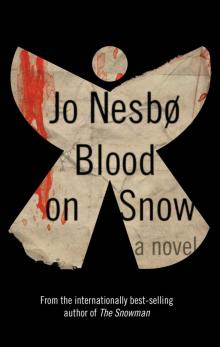 Blood on Snow: A novel
Blood on Snow: A novel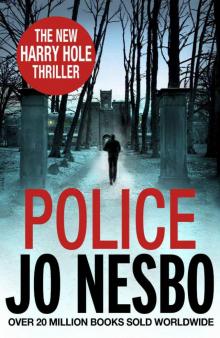 Police: A Harry Hole thriller (Oslo Sequence 8)
Police: A Harry Hole thriller (Oslo Sequence 8) Doctor Proctor's Fart Powder: The Great Gold Robbery
Doctor Proctor's Fart Powder: The Great Gold Robbery Bubble in the Bathtub
Bubble in the Bathtub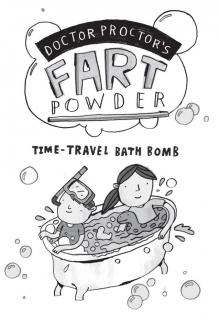 Doctor Proctor's Fart Powder: Time-Travel Bath Bomb
Doctor Proctor's Fart Powder: Time-Travel Bath Bomb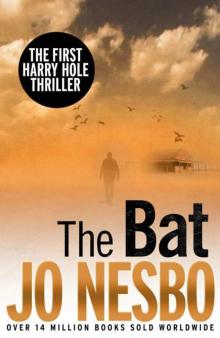 The Bat
The Bat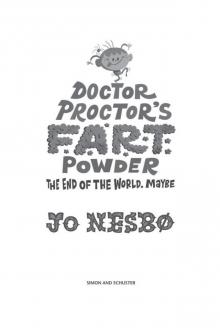 Doctor Proctor's Fart Powder: The End of the World. Maybe.
Doctor Proctor's Fart Powder: The End of the World. Maybe.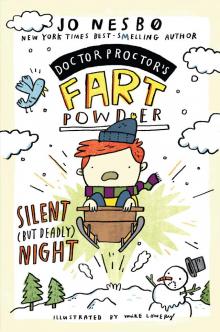 Silent (but Deadly) Night
Silent (but Deadly) Night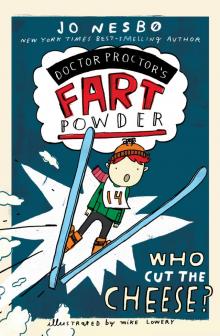 Who Cut the Cheese?
Who Cut the Cheese? Headhunters
Headhunters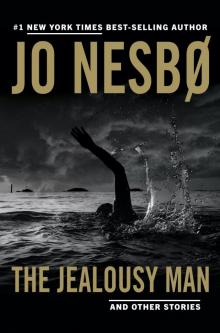 The Jealousy Man and Other Stories
The Jealousy Man and Other Stories Harry Hole Mysteries 3-Book Bundle
Harry Hole Mysteries 3-Book Bundle The Thirst
The Thirst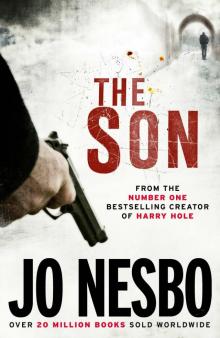 The Son
The Son The Redeemer
The Redeemer The Kingdom
The Kingdom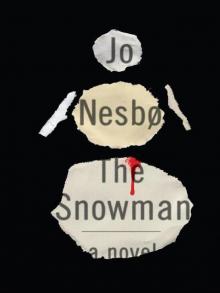 The Snowman
The Snowman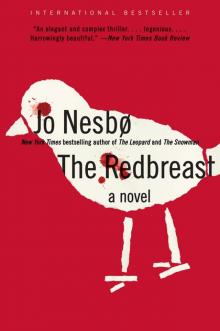 The Redbreast
The Redbreast Phantom
Phantom Macbeth
Macbeth The Leopard
The Leopard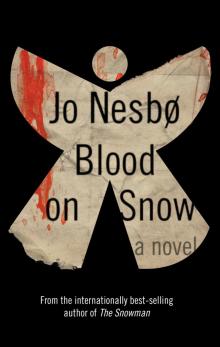 Blood on Snow
Blood on Snow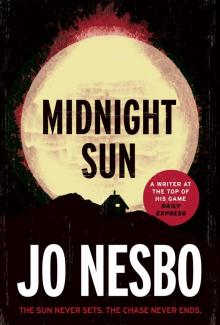 Midnight Sun
Midnight Sun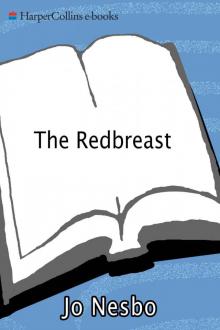 The Redbreast (Harry Hole)
The Redbreast (Harry Hole)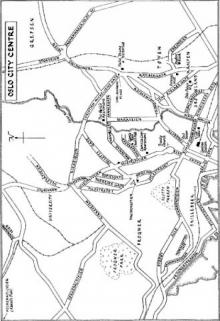 The Devil's Star
The Devil's Star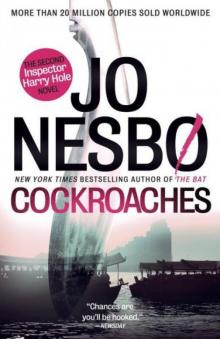 Cockroaches
Cockroaches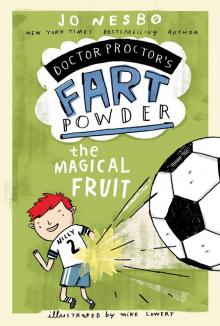 The Magical Fruit
The Magical Fruit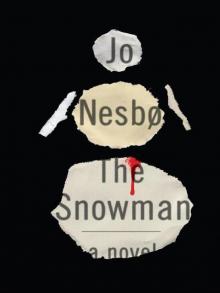 The Snowman: A Harry Hole Novel
The Snowman: A Harry Hole Novel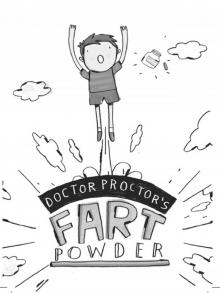 Doctor Proctor's Fart Powder
Doctor Proctor's Fart Powder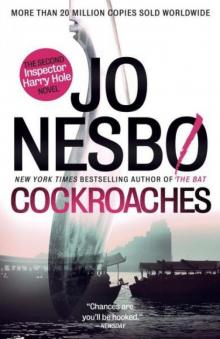 The Cockroaches
The Cockroaches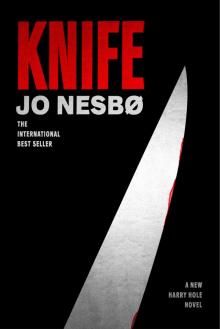 Knife
Knife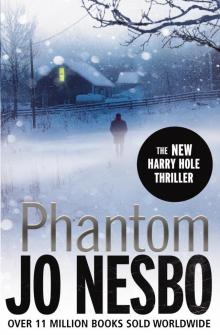 Phantom hh-9
Phantom hh-9 The Redbreast hh-3
The Redbreast hh-3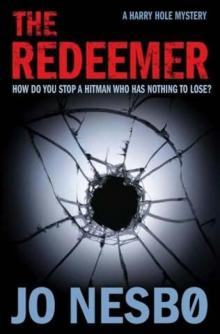 The Redeemer hh-6
The Redeemer hh-6 The Leopard hh-8
The Leopard hh-8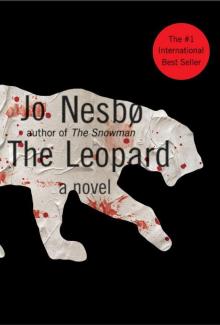 The Leopard: An Inspector Harry Hole Novel
The Leopard: An Inspector Harry Hole Novel The Great Gold Robbery
The Great Gold Robbery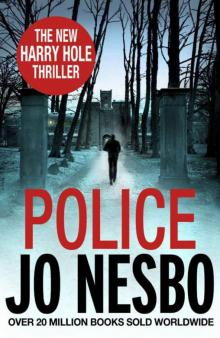 Police hh-10
Police hh-10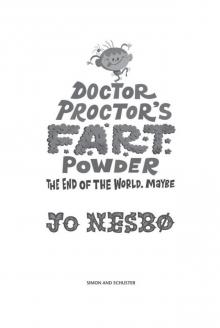 The End of the World. Maybe
The End of the World. Maybe The Thirst: Harry Hole 11
The Thirst: Harry Hole 11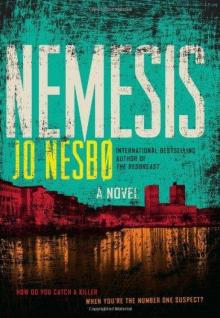 Nemesis - Harry Hole 02
Nemesis - Harry Hole 02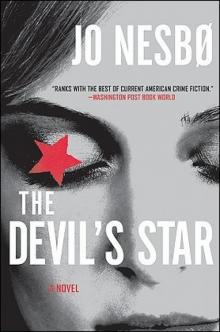 The Devil's star hh-5
The Devil's star hh-5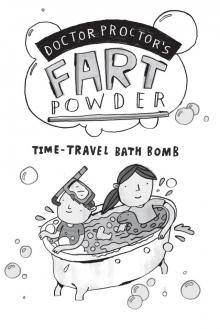 Time-Travel Bath Bomb
Time-Travel Bath Bomb